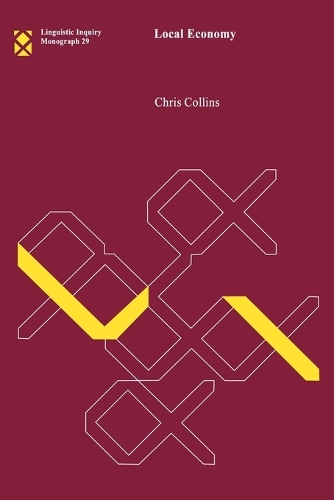
Local Economy
(Paperback)
Publishing Details
Local Economy
By (Author) Chris Collins
29
MIT Press Ltd
MIT Press
15th October 1996
United States
Classifications
Tertiary Education
Non Fiction
Grammar, syntax and morphology
415
Physical Properties
Paperback
160
Width 152mm, Height 229mm, Spine 10mm
249g
Description
Any theory of grammar must contain a lexicon, an interface with the mechanisms of production and perception (PF), and an interface with the interpretational system of semantics (LF). A traditional way to relate these three components in generative theory is through a derivation. Noam Chomsky's Minimalist Program postulates that grammatical derivations are constrained by economy conditions, requiring that derivations be minimal. One of the most important questions of syntax is what the economy conditions are and how they operate. In Local Economy, Chris Collins proposes that economy conditions are local. According to this theory, evaluating economy conditions does not involve comparing whole derivations. Rather, economy conditions are evaluated at each step in the derivation. Collins shows that locative inversion and quotative inversion provide strong arguments for local economy. In addition, he explores the far-reaching consequences of this proposal for other areas of syntax, including the strict cycle, binary branching, successive cyclicity, and expletive constructions. He demonstrates that local economy is superior to global economy on conceptual as well as empirical grounds. Local Economy is one of the first books other than Chomsky's The Minimalist Program (MIT, 1995) to deal in a general way with economy of derivation and Minimalism. Linguistic Inquiry Monograph No. 29
Reviews
"This monograph will provoke a great deal of constructive discussionand debate among syntacticians of all kinds. Collins has done anespecially good job of making the work accessible to those of us whodidn't "grow up" in Building 20." Molly Diesing, Cornell University
Author Bio
Chris Collins is Professor of Linguistics at New York University.
